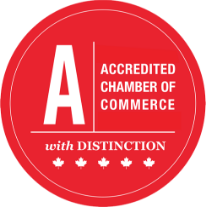The Ontario COVID-19 Small Business Relief Grant is for small businesses that are subject to closure under modified Step Two of Roadmap to Reopen beginning January 5, 2022. It will provide eligible small businesses with a one-time grant payment of $10,000.
Eligible small businesses will include:
- Restaurants and bars
- Facilities for indoor sports and recreational fitness activities (including fitness centres and gyms)
- Performing arts venues and cinemas, museums, galleries, aquariums, zoos, science centres, landmarks, historic sites, botanical gardens and similar attractions
- Meeting or event spaces
- Tour and guide services
- Conference centres and convention centres.
Eligible businesses that qualified for the Ontario Small Business Support Grant and that are subject to closure under modified Step Two of Roadmap to Reopen will be pre-screened to verify eligibility and will not need to apply to the new program. Newly established and newly eligible small businesses will need to apply once the application portal opens in the coming weeks. Small businesses who qualify can expect to receive their payment in February.
Electricity Rate Relief Support
For 21 days, starting at 12:01 am on Tuesday, January 18, 2022, electricity prices will be set 24 hours a day at the current off-peak rate of 8.2 cents per kilowatt-hour, which is less than half the cost of the current on-peak rate. The off-peak rate will apply automatically to residential, small businesses and farms who pay regulated rates set by the Ontario Energy Board and get a bill from a utility and will benefit customers on both Time-of-Use and Tiered rate plans. This will provide immediate savings for families, small businesses and farms as all Ontarians work together to slow the spread of the Omicron variant.
Ontario Business Costs Rebate Program
Online applications for the Ontario Business Costs Rebate Program will open on January 18. This program will provide eligible businesses that are required to close or reduce capacity with rebate payments for up to 100 per cent of the property tax and energy costs they incur while subject to public health measures in response to the Omicron variant.
Eligible businesses required to close for indoor activities, such as restaurants and gyms, will receive a rebate payment equivalent to 100 per cent of their costs. Those required to reduce capacity to 50 per cent, such as smaller retail stores, will receive a rebate payment equivalent to 50 per cent of their costs. A complete list of eligible businesses will be provided prior to the launch of the application portal.
Improving Cash Flow for Ontario Businesses
The government is providing up to $7.5 billion through a six-month interest- and penalty-free period starting January 1, 2022 for Ontario businesses to make payments for most provincially administered taxes.
The Province continues to call on the federal government to match provincial tax deferral efforts by allowing small businesses impacted by public health restrictions to defer their HST remittances for a period of six months.




